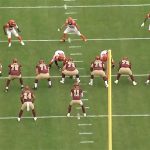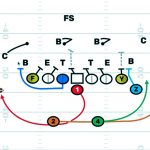In the fast-paced world of hockey, where every player has a specific role, the position that often stands out as the heartbeat of the team is the center. The pivotal nature of centers goes beyond their scoring prowess.
From commanding faceoffs and orchestrating offensive plays to actively contributing in defensive scenarios, centers are the linchpin that holds a team together.
This blog post delves into the multifaceted reasons why the center position is widely regarded as the most important in hockey.
We’ll explore the dynamic skills, strategic influence, and unique blend of offensive and defensive contributions that make centers indispensable on the ice.
Basics of Positions in Hockey
In hockey, each player on the ice has a specific position and role to play. The standard positions in ice hockey include forwards, defensemen, and goaltenders. Here’s a brief overview of each position:
Forwards
- Center (C): The center is typically a key playmaker responsible for taking faceoffs, setting up plays, and scoring goals. They play both offensive and defensive roles.
- Left Wing (LW) and Right Wing (RW): These players flank the center and are often primary goal scorers. They also assist in defensive responsibilities, supporting the defensemen when needed.
Defensemen
- Left Defense (LD) and Right Defense (RD): Defensemen play a crucial role in preventing the opposing team from scoring.
They defend their own goal and help move the puck up the ice to create offensive opportunities. They need to be skilled in both the defensive and offensive aspects of the game.
Goaltender (Goalie)
The goaltender is the last line of defense. Their primary role is to stop the opposing team from scoring goals.
Goaltenders need excellent reflexes, agility, and positioning skills. They wear specialized equipment, including pads, a mask, and a glove.
Players move between positions on the ice, and strategies may change based on the team’s style of play, the situation in the game, and coaching decisions.
Additionally, teams may employ different strategies, such as pulling the goalie for an extra attacker in critical situations.
Understanding the basics of hockey positions is crucial for players to work together effectively as a team, utilizing each player’s strengths to achieve success both offensively and defensively.
What Is the Most Important Position in Hockey?
In hockey, the center position is often considered the most important. Centrally located on the ice, centers act as the linchpin connecting offense and defense. They play a pivotal role in faceoffs, crucial for gaining possession.
As primary playmakers, centers drive offensive strategies, orchestrating attacks and creating scoring opportunities.
Their defensive responsibilities are equally vital, requiring a well-rounded skill set to disrupt opponents and support defensemen. Exceptional centers possess speed, agility, and vision, reading the game to make split-second decisions.
They act as the team’s engine, influencing the tempo and flow. The effectiveness of a center reverberates throughout the entire team, impacting both offensive and defensive outcomes.
In essence, the center position is the heartbeat of a hockey team, with its performance significantly shaping the team’s overall success.
Reasons Why the Position of Centermen Is So Important?

The position of centermen in hockey is crucial for several reasons:
Faceoffs
Centers take faceoffs at the start of play and after stoppages, determining possession. Winning faceoffs provides a strategic advantage in controlling the puck and initiating offensive plays.
Playmaking Role
Centers are often primary playmakers, responsible for distributing the puck and setting up scoring opportunities. Their vision, passing, and decision-making skills play a pivotal role in offensive success.
Defensive Responsibilities
Centers contribute significantly to the team’s defensive efforts, helping to disrupt the opponent’s plays and supporting defensemen in their zone. They play a key role in both ends of the ice.
Transition Game
Centers facilitate the transition from defense to offense, carrying the puck through the neutral zone and initiating attacks. Their ability to control the flow of the game is essential for team success.
Two-way Play
A strong center excels in both offensive and defensive aspects of the game. They are often relied upon to backcheck, win board battles, and contribute defensively while still generating offensive chances.
Special Teams
Centers often play key roles in power plays and penalty kills, showcasing their versatility and importance in critical game situations.
Leadership
Centers, especially top-line centers, often serve as leaders on and off the ice. Their influence and ability to lead by example contribute to team cohesion and success.
The center position is integral to a hockey team’s performance, impacting various aspects of the game, from possession and offensive play to defensive contributions and leadership.
The versatility and skills of a strong center can significantly elevate a team’s overall effectiveness.
Offensive and Defensive Contributions of Centermen

Centers in hockey play a pivotal role in shaping a team’s performance through their versatile contributions on both ends of the ice.
Their responsibilities extend beyond scoring goals, encompassing critical defensive duties that make them central figures in overall team strategy.
Offensive Contributions
- Playmaking: Centers are often the primary playmakers on a hockey team. They use their vision and passing skills to set up scoring opportunities for teammates.
- Faceoffs: Winning faceoffs is a key offensive contribution. Centers who excel in the faceoff circle provide their team with immediate possession and control of the puck, creating offensive opportunities.
- Scoring Goals: While wingers may be known for scoring goals, many centers are prolific goal-scorers as well. They can finish plays, capitalize on rebounds, and contribute to the team’s offensive output.
- Puck Possession: Centers play a crucial role in maintaining puck possession. Their ability to control the puck in the offensive zone allows for sustained pressure on the opposing team and more scoring chances.
- Transition Game: Centers often initiate the transition from defense to offense. Their ability to carry the puck through the neutral zone and make accurate passes facilitates smooth offensive entries.
Defensive Contributions
- Backchecking: Centers are responsible for supporting the defense by backchecking, disrupting the opponent’s offensive plays, and helping to regain possession.
- Board Battles: Engaging in battles along the boards is a common defensive responsibility for centers. Winning these battles helps in regaining possession and transitioning to offense.
- Defensive Zone Coverage: Centers play a role in defending their own zone, covering opponents, blocking passing lanes, and helping the defensemen clear the puck.
- Penalty Killing: Centers are often key players on penalty-killing units, using their defensive skills to thwart the opponent’s power play.
- Faceoffs in Defensive Zone: Winning faceoffs in the defensive zone is crucial for preventing immediate scoring opportunities by the opposing team.
In essence, centers are not only vital for offensive creativity and scoring but are also integral to a team’s defensive structure. Their two-way play makes them versatile assets, contributing to both ends of the ice.
Versatility of Centers in Hockey

Centers in hockey showcase remarkable versatility, serving as dynamic players with skills that extend across various aspects of the game.
Their adaptability and well-rounded abilities make them central figures in team strategies and key contributors to overall success.
Playmaking Prowess
Centers are often the primary playmakers, exhibiting exceptional passing skills and vision. Their ability to read the game and create scoring opportunities for teammates distinguishes them as offensive catalysts.
Goal-Scoring Ability
While renowned for their playmaking, many centers also possess strong goal-scoring instincts. Their positioning, quick releases, and ability to capitalize on scoring chances make them dual threats on the offensive end.
Faceoff Excellence
Centers play a critical role in the faceoff circle, influencing possession outcomes. Their proficiency in winning faceoffs provides a strategic advantage, dictating the flow of the game and creating immediate scoring chances.
Defensive Acumen
Despite their offensive responsibilities, centers actively contribute to team defense. They engage in backchecking, disrupt opponents’ plays, and provide support to defensemen, showcasing a commitment to a well-rounded game.
Special Teams Impact
Centers often feature prominently on special teams, contributing both to power plays and penalty kills. Their ability to excel in various situations highlights their adaptability and importance in critical game scenarios.
Leadership and Communication
Many centers assume leadership roles, acting as on-ice generals. Their communication skills, strategic insights, and ability to motivate teammates contribute to a cohesive team dynamic.
Versatile Ice Presence
Centers navigate the entire ice surface with ease. Their agility, speed, and ability to transition between offensive and defensive roles seamlessly make them pivotal components of team strategies.
The versatility of centers lies in their capacity to impact every facet of the game, making them indispensable assets for any hockey team aiming for a well-balanced and effective playstyle.
FAQs
Is the center position truly the most important in hockey?
Yes, the center position is pivotal. Centers play a dual role, excelling in offensive playmaking and contributing defensively. Their influence on faceoffs, transition play, and overall game tempo makes them integral to a team’s success.
What makes centers crucial for offensive success?
Centers are primary playmakers, orchestrating offensive plays with exceptional passing and vision.
They control the puck through the neutral zone, initiate attacks, and contribute significantly to goal-scoring opportunities, impacting the team’s offensive efficacy.
How do centers contribute defensively in hockey?
Centers actively engage in backchecking, disrupt opponents’ plays, and support defensemen in their defensive zone.
Their two-way proficiency and commitment to defensive responsibilities make them valuable assets, influencing the team’s overall performance.
Are there specific skills that make centers stand out?
Yes, centers showcase a diverse skill set. Their abilities include faceoff expertise, playmaking prowess, goal-scoring instincts, defensive acumen, and versatility on special teams.
These skills collectively make them dynamic and essential contributors to team success.
Can other positions impact the game as much as centers?
While other positions are crucial, centers uniquely impact both ends of the ice.
Their involvement in faceoffs, offensive playmaking, defensive contributions, and leadership roles sets them apart, making the center position widely recognized as the heartbeat of a hockey team.
Wrapping Up
In the intricate tapestry of hockey, the center position emerges as the nucleus, influencing the ebb and flow of the game.
From faceoff circles to defensive zones, centers are architects of both offensive brilliance and defensive resilience.
Their dynamic skill set, encompassing playmaking, goal-scoring, and strategic acumen, underscores their status as the heartbeat of a team.
As we unravel the reasons behind the prominence of centers in hockey, it becomes clear that their versatility and impact extend far beyond individual achievements.
In the symphony of the game, the center’s melody resonates, defining the team’s rhythm and often determining the score on the scoreboard.








James Felix